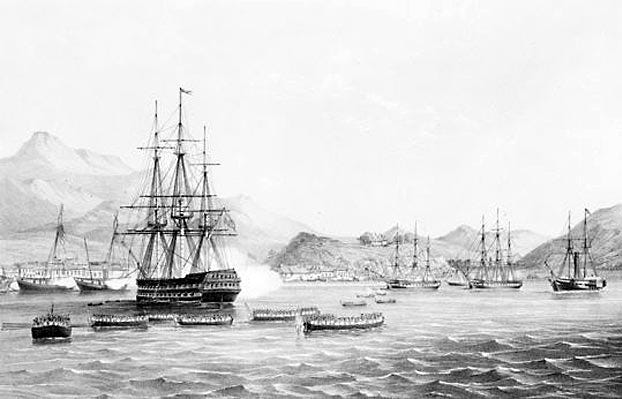Thoughts on Hobson's "Imperialism: A Study" (1902)
John A. Hobson, Imperialism: A Study (New York: James Pott & Company, 1902), pgs. 400.

The word imperialism is a dirty word. Genocide, colonies, war, racism, are just a few of the negative ideas that are tied to the concept of imperialism. Yet, if one asked what it truly meant, most would be unable to describe it. Such a powerful concept that encapsulates a long history of violence and oppression, to be nigh undefinable suggests how broad and widely used the term has become.
John Hobson was a writer and political journalist (see here). Yet, he perhaps should best be remembered for his landmark Imperialism: A Study. Written after his viewing the Second Boer War (see here) as a war time newspaper correspondent, Hobson came to believe that Britain’s imperial expansion was driven primarily by small interest groups (primarily capitalists) who operated in the background of society, pushing the state towards policies that were detrimental to the whole of British society. His work soon became the foundation for nearly a century of imperial studies, providing the initial working definition and connecting imperialism to the growth of capitalism in Europe. This review will briefly sum up Hobson’s arguments and offer my own takeaways from the text.
Over 400 pages in length, Hobson sought to “give precision to a term which is on everybody’s lips” and quickly admitted his inquiry was completely set against the institution of imperialism. He frequently called it a parasite and disease on the state. Hobson argued that imperialism was a relatively new phenomenon and was a destructive outgrowth of nationalism (something he saw as a positive good) that occurred when nation “overflows its bounds.” This overflowing thus resulted in two products: colonialism or imperialism. Hobson stated that colonialism was “the migration of part of a nation to vacant or sparsely peopled foreign lands, the emigrants carrying with them full rights of citizenship in the mother country.” Of this process he stated that two results follow, either the colonies become independent (as the United States) or they become subjugated to imperialism.
Imperialism on the other hand is rooted in conflict with other empires, subjugating what he Darwinisticly deemed “lower races” and rejecting free trade. Imperialism was thus seizing and controlling foreign lands for the profit of the few. In almost a Whig fashion, Hobson argued that Imperialism was one of the possible next steps in the process of human political organization and was a relatively recent product of the 1870s. Imperialism, rather than being a cultural force, was driven by economics, in particular a corrupted capitalism. What he called the “taproot” of imperialism, capitalist backers orchestrated and moved government policy in order to sustain their investments. Rather than invest in local projects with long term gains, but low immediate payouts, Hobson declared that these capitalists, driven by greed, sacrificed the good of the nation (including its treasure, sons, and energy) into maintaining an expansive empire abroad. This in turn leads to increased racial hierarchies, class stratification, and moral degradation. While consistently using the British as an example, Hobson noted that other European powers including Germany, France, Belgium, and Russia, as well as the United States, were all being drug by capitalists towards imperial policies.
Much more could be written (and has been) about Imperialism: A Study, however my own insights will primarily focus on the implications as a landmark study. First the root of imperialism lying with capitalism has gained tremendous traction in the modern academy. Hobson and other scholars do agree that other factors do contribute (such as culture and religion), however they are not the key driver. Economics is the brain and the willpower that captivates the entire body of the state in its pursuit of expanded profits. This argument mirrors Karl Marx’s view of culture and religion being the “super-structure” of life, or in other words, merely products of the deeper economic factors. This perhaps explains some of modern day academics appreciation for Hobson, or at minimum his definitions. I remain unconvinced as ever about the dominance of economics in human life. While economics certainly play a role (often a significant role) in human existence, I remain entirely skeptical of the over-emphasis on the subject and find it absurd to think that any person is driven entirely by his economics.
Another point that drew my attention was the role of small conspiracies or groups in creating the empire. While many imperial scholars have moved towards a Marxian view that emphasizes “systemic” creation of imperialism, the role of small conspiracies in creating empire has cropped up, particularly in reference to the modern state of Israel. Hobson was an anti-Semite, and while (for the most part) imperial histories have shed their anti-Jewish nature, the role of the conspiracy remains a continued part of the larger imperial story.
Finally, the role of race in imperialism is a core foundation of the field. It is undeniable that racism was rampant in imperial power structures. Yet, it was intriguing to note how Hobson retained racist views himself by arguing for race uniformity and by arguing that people could not ever possibly become “civilized.” He wanted an organic governance from the general international community, i.e. those he viewed as being inferior due to their race being controlled by white Europeans. Furthermore, empire was a system that only Europeans could obtain. Throughout it seems Hobson is back and forth between declaring imperialism to be brutal and evil for the home state and the colonies and something essential.
Imperialism: A Study was a tome, but a fascinating work that has remained a foundational piece in the study of imperialism. Furthermore, its ability to provoke ideas on the subject a century later reflects well on the author and his attention to such a controversial and wide subject. While dense, this book is still worth a read for those seeking to understand the development of imperial studies and the concept of imperialism.
Robert Swanson



